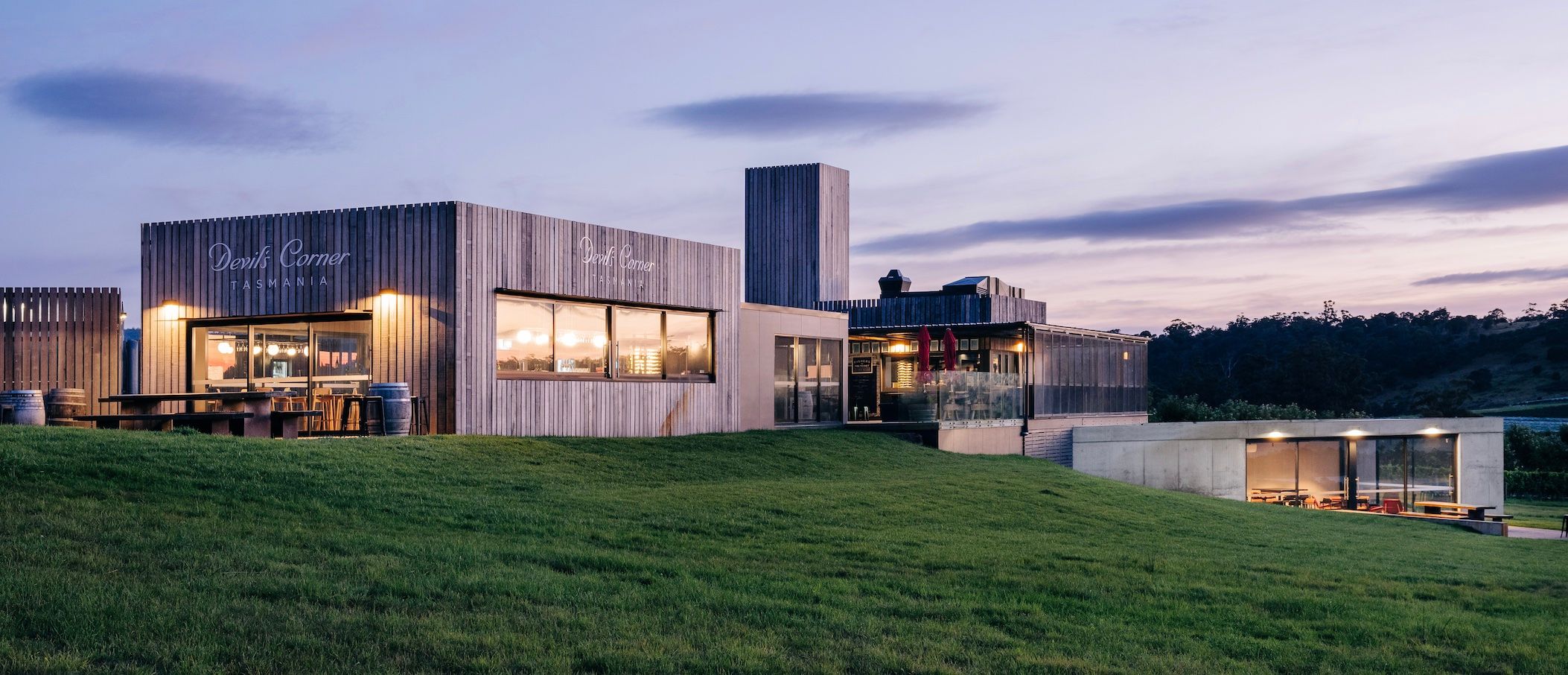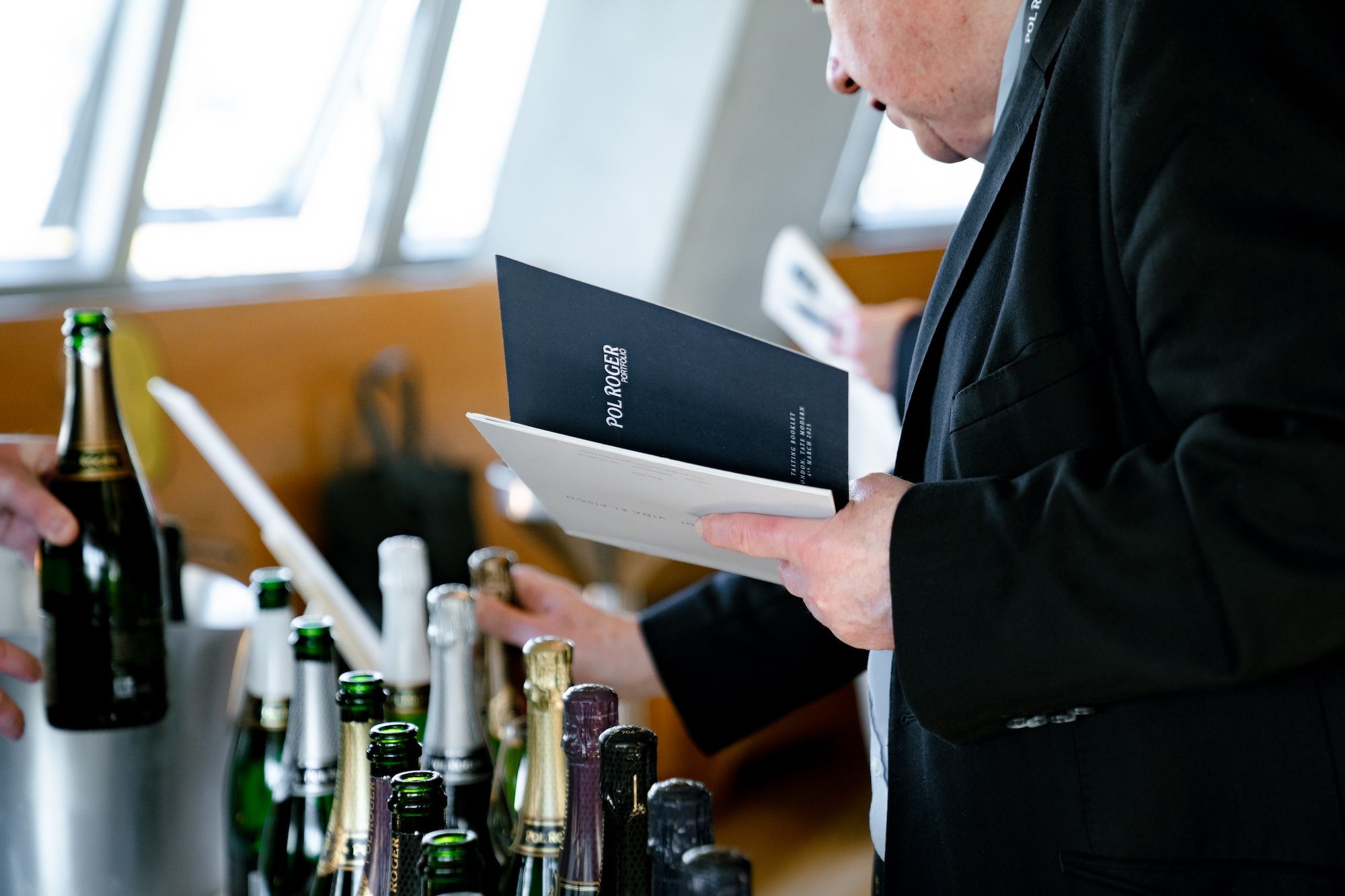What is your winemaking philosophy and describe the style of wines you are looking to make?
Here in Tasmania, we are blessed with a true cool climate, which allows for the slow development of flavours and aromas in the grapes and retention of acidity. This is key to making so many of the great wines of the world and is especially ideal for delicate varieties like Pinot Noir.
Tasmania is known for being one of the best places on earth to grow Pinot Noir and produces wines with amazing fruit potential and concentration, but we’re also at the mercy of nature. We believe in allowing the vineyards and grapes to express themselves in the wines, with minimal intervention in the winemaking process.
Our goal is to craft wines that are bright, fresh, and full of fruit concentration, without being heavy. We carefully pick our grapes at just the right moment to ensure that our wines showcase the true essence of our Tasmanian terroir.
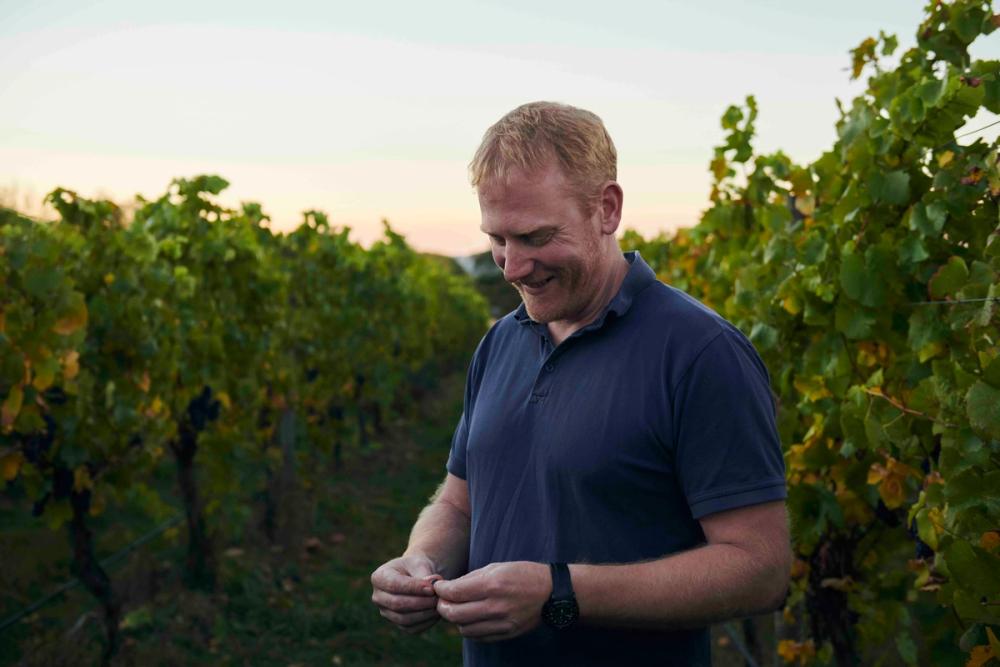
Winemaker Tom Wallace
Has that changed at all over the years and why?
It’s changed in that each year we continue to deepen our understanding of the vineyard resources available to us, including individual blocks, which gives us the confidence to make informed and accurate decisions. It’s true that here in Tasmania each vintage is unique with a trend towards lower alcohol levels and picking earlier to ensure optimal fruit condition and wines that are elegant and have great length.
What impact is climate change having on you and what are you doing to mitigate?
In 2022 and 2023, the East Coast of Tasmania experienced some of the coldest seasons on record. I’m looking forward to seasons with a little more warmth, as the warmer years have seen some of our best Pinot Noirs. The wines definitely benefit from the extra level of fruit complexity that warmer years bring, so this climate could suit Tasmania well.
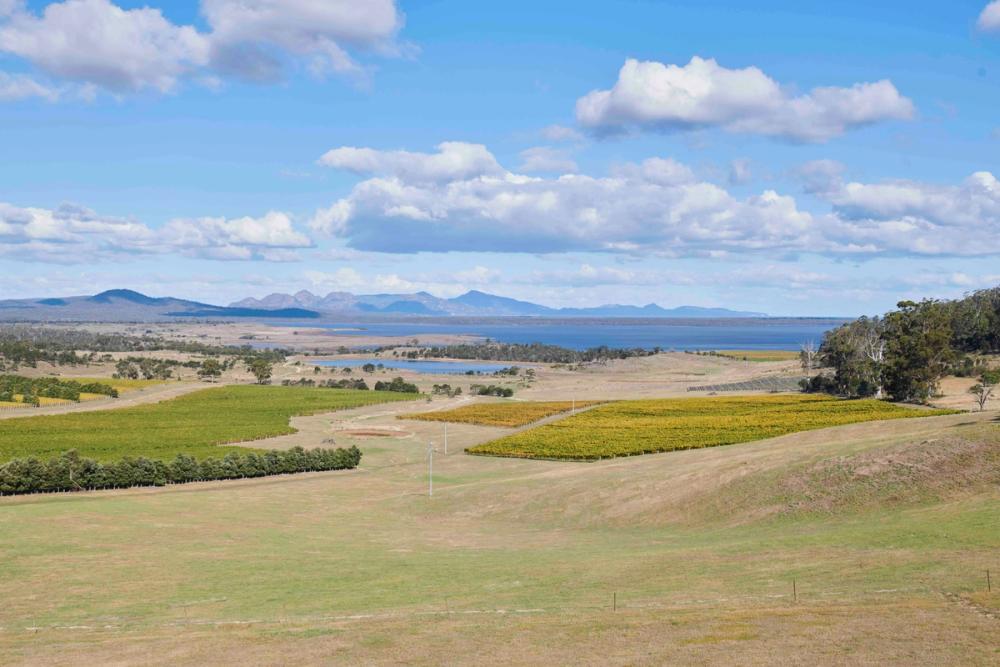
Beautiful but challenging - the landscape surrounding Devil's Corner
What steps are you taking around sustainability and biodiversity?
We understand that sustainability is essential for the longevity of the Devil’s Corner brand and producing exceptional wines from Tasmania. Our vineyards and winery in Tasmania are certified under the Sustainable Winegrowing Australia scheme. We record our energy and water usage, amongst other areas, to assess our environmental impact and identify opportunities for improvement. By learning from others in the industry, we strive to implement best practices and create efficiencies in our operations.
We were very proud that Devil’s Corner recently won the Innovation and Transformation Award at the 2024 East Coast Tasmania Tourism (ECCT) Recognition Awards. The award recognised Devil’s Corner for revolutionising our water management practice by implementing a water treatment plant utilising dam water for the entire vineyard and cellar door site. We also have sheep running around the vineyard in the winter months looking after the grass which saves on multiple tractor passes!
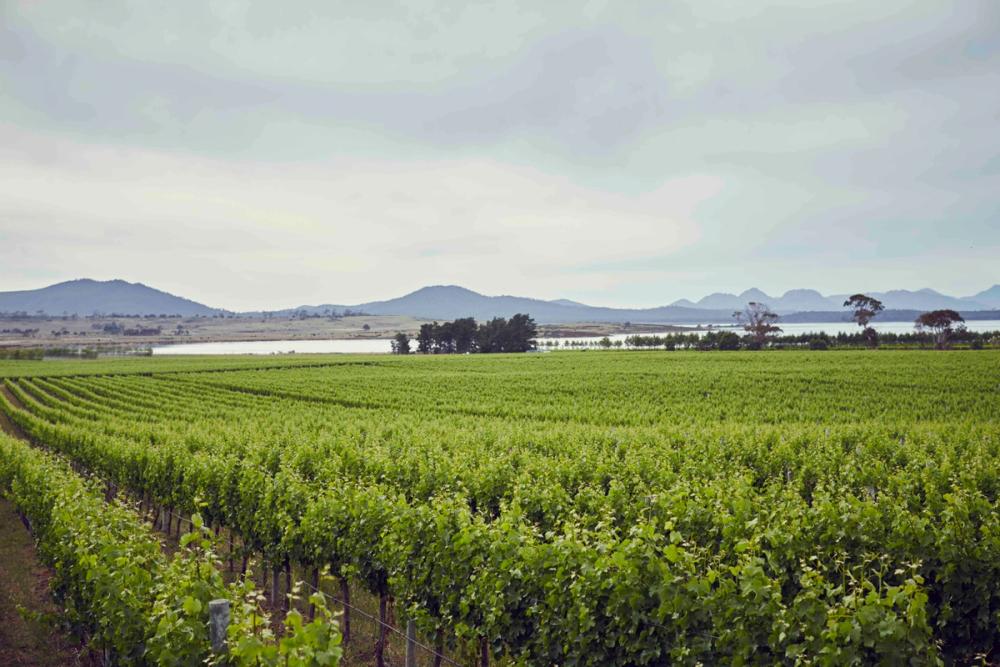
Devil's Corner invests in major environmental projects in order to make as sustainable wines as possible
Your wines are in the UK - why do you want to be in the UK market and what do you hope to achieve?
We have retained a strong history and connection to the UK market since the 1980’s, and with the development of additional ranges and the acquisition of further vineyards and brands into our portfolio, we are excited to reposition some of these wines in different channels within the UK. In addition to our strong presence in Australia, we see the UK as an exciting market for Devil's Corner and Tasmania. Tasmania is a small island at the bottom of Australia but our wines are unique, I strongly believe we have the right conditions to grow some of the best grapes in the world. We hope to inspire consumers, reward curiosity and enhance the premium, cool-climate credentials of Tasmanian wines.
Who are you working with in the UK and why did you choose them to work with?
We are currently working with Enotria & Coe - our UK distribution partner for Devil’s Corner and Cube Communications, our PR Agency, to ensure a successful launch into the UK market for Devil’s Corner.
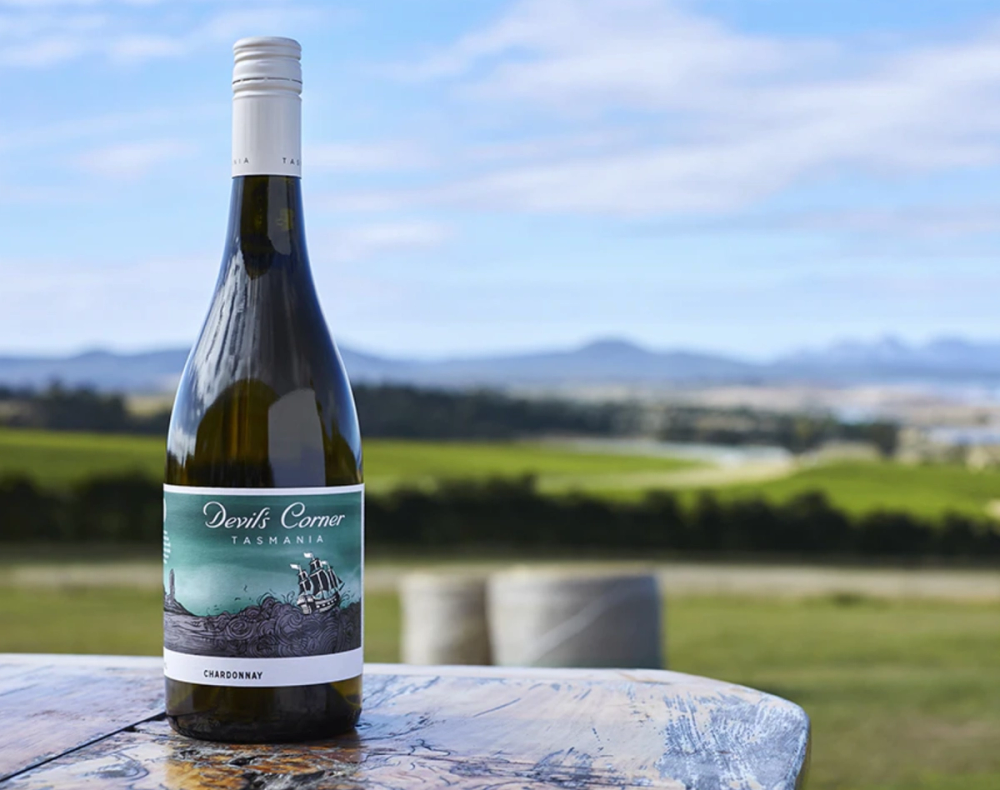
Devil's Corner Chardonnay from its flagship range is now in the UK with Tesco
What channels of the market are you focused on?
We will introduce tiered ranges of our wines in the on-trade and within retail.
What are your other main export markets?
We have been exporting since 1920 and enjoy international representation across our family of brands. Our main export markets for our Tasmanian wines are Asia, North America, and the Nordics, although we are currently expanding this footprint in select, strategic markets.
What are your next plans for the winery in terms of growth?
We will look to invest in more premium Pinot Noir, Chardonnay and Sparkling, while continuing to invest in our winery where we are always pushing to modernise and streamline where possible.
Anything else to say?
Tasmania is only 320km long and we have amazing grape growing areas across the island that show true regionality in the taste and flavours of the wines produced. The best way to experience this is to come and visit, but you can start by trying our Devil’s Corner wines!
* You can find out more about Devil's Corner on its website here.
